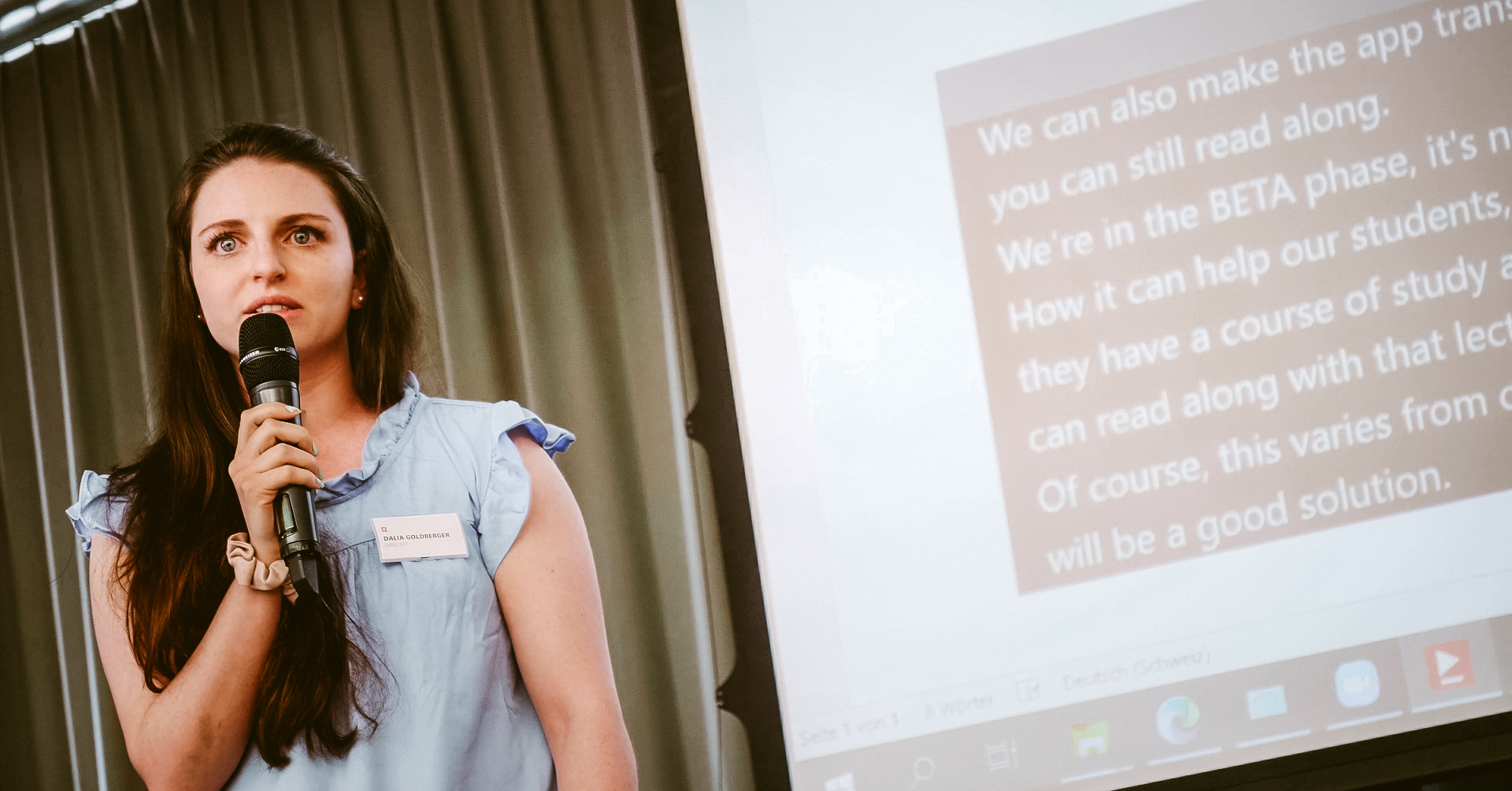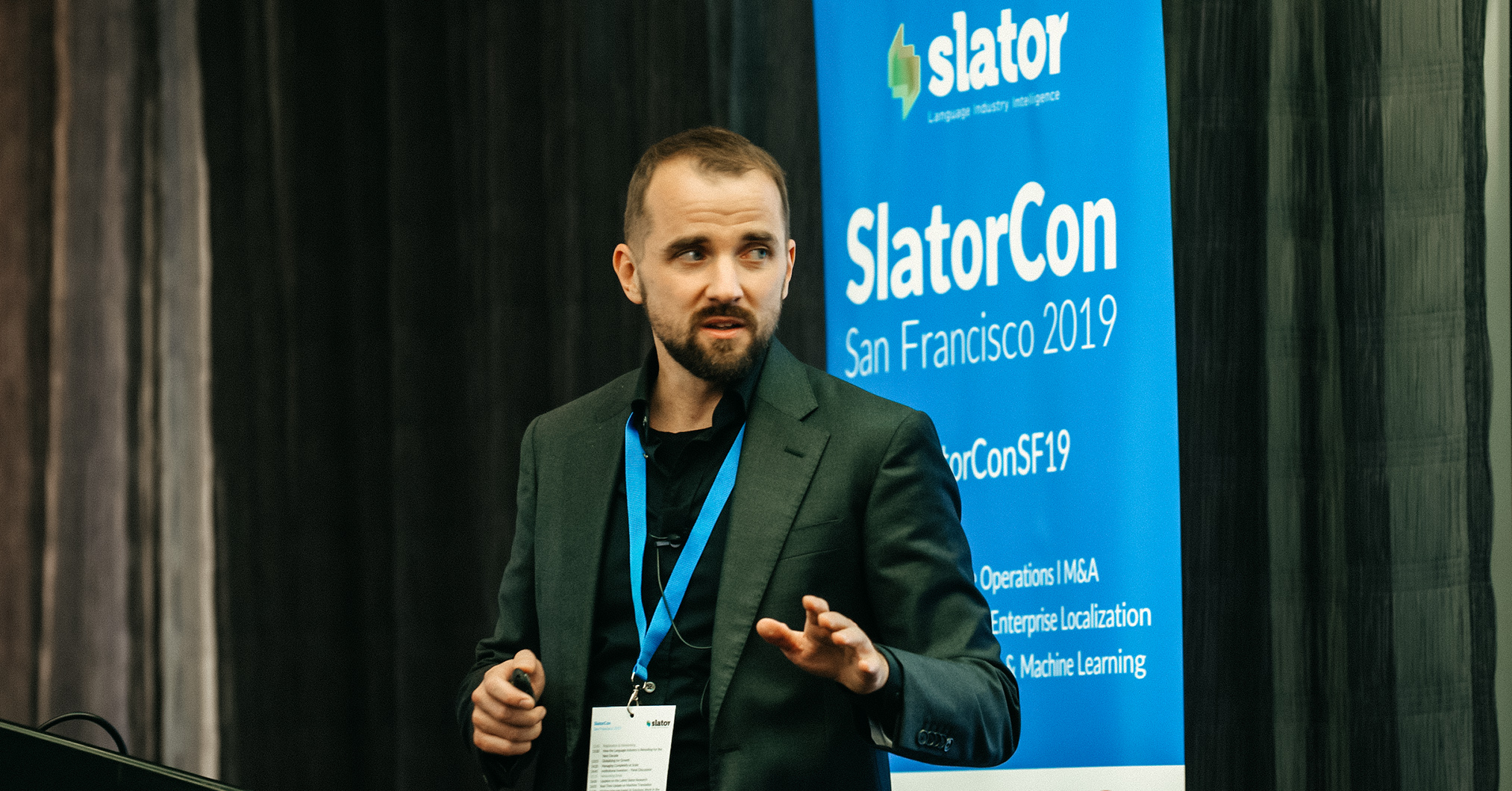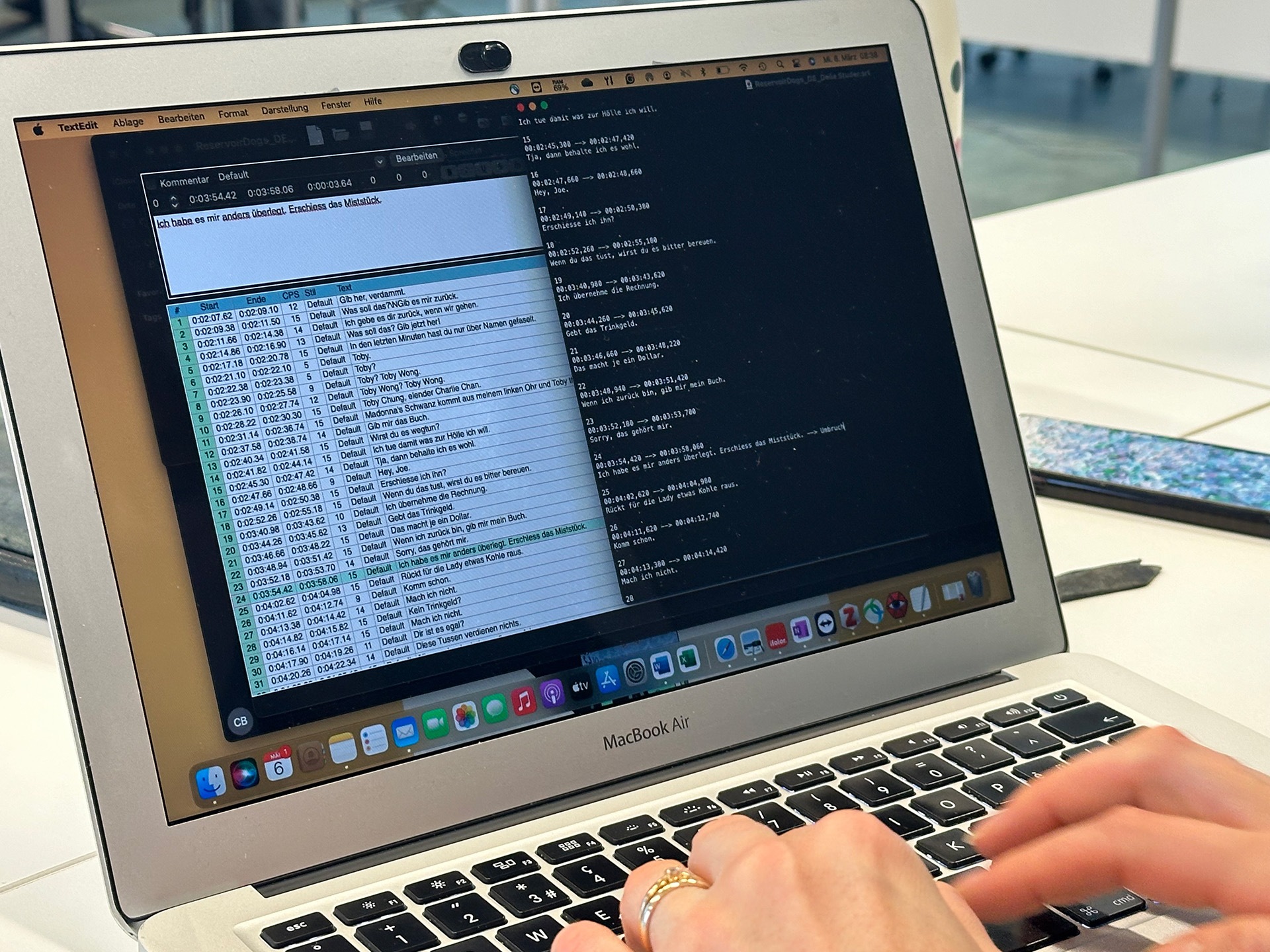BA in Multilingual Communication
In our digital and globalised world, communication between cultures and languages as well as people and artificial intelligence (AI) is more important than ever. This degree programme lays the foundations for a multilingual career in which you connect people, use language technologies professionally and put your creative side to work in designing communication.

Those who can mediate between people, cultures and languages have a great advantage. As a multilingual communication and language expert, you use creative solutions and innovative technologies to break down boundaries in a national and international context.
In the BA in Multilingual Communication, you acquire above-average language skills in at least three languages. You also gain valuable expertise that allows you to make skilled use of AI-based language technologies, intelligently prepare specialist content for various target groups and media and put together multilingual communication in a professional and creative manner – orally and in writing, online and offline. Become part of the vibrant, digitalised language industry.
Career
Whether subtitling films, designing technical documentation or interacting with people both with and without sensory impairments, the BA in Multilingual Communication opens up a wide range of career profiles at home and abroad at both small and large companies alike and with other providers in the booming language industry. You combine human creativity with technical expertise and mediate wherever communication takes places across language, cultural and specialist frontiers and therefore whenever professional multilingualism is needed. Your future career prospects are as broad as your interests.
What our graduates say
-

Tipps für den Berufseinstieg in die Barrierefreie Kommunikation
Barrierefreie Kommunikation ist Dalia Goldberger ein Herzens-Anliegen. Bereits während ihres Bachelorstudiums in Mehrsprachiger Kommunikation begann ihre Karriere bei ihrem jetzigen Arbeitgeber, der ...
-

Das IUED und die Sprachindustrie: Eine lange Freundschaft
Sie sind Übersetzerinnen, Konferenzdolmetscher oder Terminologinnen, Sprachenthusiastinnen, Content & Media Manager oder Technische Redakteure und alle sind sie mehrsprachig. Daran haben die ...
-

Mit dem Bachelor Mehrsprachige Kommunikation in die Welt des Eventdesigns
Im Projektseminar «Eventdesign und Management» hat sich Jeanne Zoë Send zum ersten Mal mit Eventdesign beschäftigt. Jetzt arbeitet die Absolventin des Bachelor Mehrsprachige Kommunikation als ...
Programme
In the BA in Multilingual Communication, you learn to use language in a targeted, efficient and professional manner. You acquire outstanding expertise in three languages of study and gain a wide-ranging skill set that allows you to mediate between languages, cultures and contexts and create multilingual communication in an accomplished and creative fashion. The degree programme contents include:
- Formulating texts in your languages of study
- Knowledge of the cultural areas of your languages of study
- Translation and language technologies
- Accessible communication
- Public service and court interpreting
- Social media communication
- Event design
- Subtitling
- Technical documentation
- Single-source publishing
- Localisation and much more
Further information about the degree programme can be found on our German-language websites:
About the BA in Multilingual Communication
Languages of study
Programme structure
Specialisations
Admission
Costs
Registration for the information event
Application for the degree programme
Graduation ceremonies
Specialisations
By choosing your specialisation, you decide whether you would like to take a closer look at oral or written communication. Alternatively, you also have the option to specialise in the digitised preparation of complex specialist content.
Oral Communication and Language Mediation
You focus on oral communication in a variety of different contexts and develop appropriate cross-cultural skills. You also learn key project-coordination and event-management skills and how to communicate on social media in a professional and multilingual manner.
Multimodal Communication and Translation
You deepen your skills in written translation and learn to use AI-based language technologies in various areas of language mediation in a professional fashion, be it in the area of online translation, subtitling or accessible communication, among many others.
Technical Communication and Information Design
You specialise in information design in the digitised working world, optimised usability and how to prepare complex subject content for a range of target groups and media.
Artificial and human intelligence
Artificial intelligence (AI) has long since been part of the language industry. This is a development that also has implications for how we train language experts. AI-based systems can now generate texts, translate and even write creative content. In order to successfully utilise AI in a professional context, however, it is important to know how to use these systems and what the legal framework for doing so looks like. The BA in Multilingual Communication therefore provides you with a springboard to learn how to formulate prompts in a targeted manner when creating multilingual texts and media as well as how to support companies as a consultant during the introduction of AI-based language systems for multilingual communication.
Insights into the degree programme
-

Wenn Untertitel den Ton angeben
Sie sind kaum mehr wegzudenken und man findet sie in Social-Media-Videos, der Lieblingsserie auf Netflix oder bei Filmen im Kino: die Untertitel. Sind sie gut, nehmen wir sie kaum wahr – schlechte ...
-

Bin ich zu alt zum Studieren?!
Ich war 38 Jahre alt und mein Leben war nicht so verlaufen, wie ich es ursprünglich geplant hatte. Ich war kurz vor der berüchtigten Midlife-Crisis und fragte mich, was ich denn mit dem Rest meines ...
-

Von der technischen Redakteurin zur Informationsarchitektin
Céline Simmen schloss 2021 den Bachelor Mehrsprachige Kommunikation mit der Vertiefung Fachkommunikation & Informationsdesign (damals Technische Kommunikation) erfolgreich ab. Nach ersten Erfahrungen ...
At a glance
Downloads: fact sheet(PDF 576,2 KB) and study guide(PDF 384,5 KB)
Admission requirements: Present either a Swiss higher secondary education certificate (Matura) – which may be either a Swiss general baccalaureate (in German, “gymnasiale Maturität”), a Swiss specialist baccalaureate (in German, “Fachmaturität”), a Swiss vocational baccalaureate (in German, “Berufsmaturität”) – or an equivalent qualification from another country and pass the aptitude test. Details on admission
Title: Bachelor of Arts ZHAW in Multilingual Communication
Number of credits: 180 ECTS credits
Organisational form: full-time, part-time possible
Duration: 6 semesters (full-time), approx. 10 semesters (part-time, depending on individual profile)
Programme start: autumn
Application deadline: 30 April
Admissions procedure: information on the aptitude test(PDF 131,7 KB)
Location: Winterthur, option to complete the fifth semester as a semester abroad or internship semester
Teaching language: German and the respective languages of study
Tuition fees: CHF 720.- per semester + additional course-related expenses
Graduate programmes: Master of Arts in Applied Linguistics and others
Legal basis: academic regulations and annex
Information events
Admission
Admission requirements
To be admitted for enrolment in this programme, you will need to meet the following requirements:
- Present either a Swiss higher secondary education certificate (Matura) – which may be either a Swiss general baccalaureate (in German, “gymnasiale Maturität”), a Swiss specialist baccalaureate (in German, “Fachmaturität”), a Swiss vocational baccalaureate (in German, “Berufsmaturität”) – or an equivalent qualification from another country.
- A successful result in our aptitude test
You are not required to demonstrate practical professional experience (e.g. a year of work experience) in order to be admitted to the BA in Multilingual Communication.
Aptitude test
The aptitude test consists of several language tests.
You will be tested in the languages you intend to study, i.e. a main language (mother tongue) and at least two foreign languages. You may take tests in a greater number of languages than can be studied in the foundation course. The level of proficiency required for admission is equivalent to an above-average baccalaureate grade in your main language and approximately C1 under the Common European Reference Framework in your foreign languages.
Passing grades and language combinations
To pass the aptitude test, you must pass each unit (approx. 60% pass mark). If you pass the aptitude test, you are entitled to enrol in the degree programme in the year you take the test or in either of the two years thereafter. If you do not pass the aptitude test at the first sitting, you may resit the test one more time, the resit being no earlier than one year after the first attempt. You must only resit those units of the test which were failed.
As a rule, you study the combination of languages you entered on your application form. When the grade achieved in a language test is only just sufficient, we reserve the right to determine the language combination on the basis of the admissions assessment results (with the stronger foreign language being the first foreign language and the weaker foreign language the second one).
Dispensation
You must sit a language test in your main language. No dispensation from this requirement can be granted for any candidate.
If you have a recognised language certificate at level C2 in a foreign language, you can be granted a dispensation from the test in that language provided the certificate was awarded no more than two years before the date of your application.
German as a foreign language
Goethe-Zertifikat C2: Grosses Deutsches Sprachdiplom
English as a foreign language
Certificate of Advanced English, Grade A
Certificate of Proficiency in English
TOEFL (Internet-based), score: 115
IELTS, Band 8.0
French as a foreign language
Diplôme Approfondi de Langue Française DALF C2
Italian as a foreign language
CELI 5 Certificato di conoscenza della Lingua Italiana
PLIDA C2
Spanish as a foreign language
Diploma Superior de Español DELE C2
Preparation
Depending on your language level and learning type, you can prepare in different ways for the language tests. We recommend that you spend time in the countries where the relevant languages are spoken, doing language courses, internships and/or working. We also recommend that you consciously and actively use the language in the run-up to the language tests (e.g. with exercise books) and consume content in your chosen languages via television, newspapers and podcasts.
The following demo versions of the language tests give an idea of the level required:
Dates and deadlines
The final date for applications is 30 April. The aptitude test tasks place in May during calendar week 21 (overview of dates and deadlines). The exact dates will be communicated to you in person once your application has been received. All language tests are usually completed on a single day. If you take tests in more than one main language or more than two foreign languages, you may be asked to attend on a second day.
For prospective students outside Switzerland
Regular degree programme at the ZHAW with a foreign university entrance qualification
If you have gained a foreign qualification either abroad or in Switzerland which allows you access to higher education (e.g. Abitur or International Baccalaureate), please submit the documents requested by the academic office responsible for the degree programme you have chosen so that your qualification can be checked for equivalency. This equivalency recognition process follows the Guidelines on Equivalency Recognition for Bachelor’s Degree Programmes and takes place after your application has been submitted. If you have any questions, please contact the academic office. There are no quotas on students from other countries.